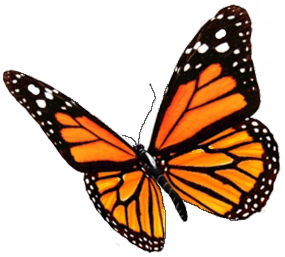 Where are the bugs?
Where are the bugs?Scientists are reporting that Insects around the world are in a crisis, as a number of long-term studies showing dramatic declines in their population. Insect-eating animals are also in decline.
Other scientists blame climate change for the dieoff of insects. Regardless of the cause, Louisiana State University entomologist Timothy Schowalter and others, are concerned that the lack of insects, who pollinate our foods, mean that our food supply may be in jeopardy.
Scientists are also reporting many instances of intersex in fish, where male fish are found to have female egg cells growing in their testes. It is believed that this is caused by chemicals, including pharmaceuticals, pesticides, and personal care products. Some chemicals of concern include estrogens from birth control pills, the plasticizer bisphenol A, and the herbicide atrazine which can mimic, and in some cases, interrupt a body’s normal hormonal processes.
And, it’s not just fish. Tyrone Hayes, Associate Professor of Integrative Biology at the University of California and his associates are associating the use of the herbicide atrazine to the demasculinization of tadpoles, turning them into hermaphrodites — creatures with both male and female sexual characteristics. They are also recording a severe drop in the male hormone, testosterone, in sexually mature male frogs, and smaller vocal organs, reducing their ability to call potential mates.
If chemicals being used by humans are causing male fish and frogs to produce eggs, what is this doing to the humans? If chemicals, or climate change, or both, are killing of our pollinators, what will happen to our food? If we don’t act soon, are we putting the future of humanity at risk?
We are still learning. More information about the harmful consequences of pesticides and other dangerous chemicals, especially for our younger children, continue to be discovered.
I’ve fought for pesticides to protect our children, and will continue to do so. Last year, I helped author HB399, “Relative to pesticide use and notification in places where children play,” which had full bipartisan support. We lost that battle, but the war is not yet over.
The “7th generation” principle taught by Native Americans says that “in every decision, be it personal, governmental or corporate, we must consider how it will affect our descendents seven generations into the future.”
“We have not inherited the earth from our ancestors, we have borrowed it from our children.”
And we are not passing on to them it in very good condition.
============================================
Suggested reading:
https://www.washingtonpost.com/science/2018/10/15/hyperalarming-study-shows-massive-insect-loss
https://news.nationalgeographic.com/2016/02/160203-feminized-fish-endocrine-disruption-hormones-wildlife-refuges/
https://www.berkeley.edu/news/media/releases/2002/04/15_frogs.html
